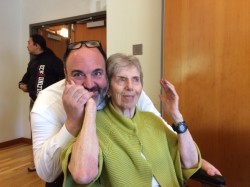Social Interactions and Companionship for Memory Care
Caring for seniors with memory loss goes beyond medical attention. It requires emotional support, connection, and constant engagement. Social interactions and companionship play a pivotal role in maintaining their quality of life. Simple daily conversations, shared activities, and...










 Andrew Cohen, of
Andrew Cohen, of